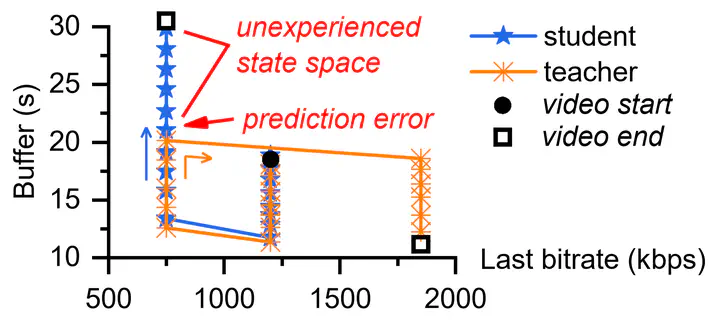Practically Deploying Heavyweight Adaptive Bitrate Algorithms With Teacher-Student Learning
 PiTree | Teacher-student learning
PiTree | Teacher-student learningAbstract
Major commercial client-side video players employ adaptive bitrate (ABR) algorithms to improve the user quality of experience (QoE). With the evolvement of ABR algorithms, increasingly complex methods such as neural networks have been adopted to pursue better performance. However, these complex methods are too heavyweight to be directly deployed in client devices with limited resources, such as mobile phones. Existing solutions suffer from a trade-off between algorithm performance and deployment overhead. To make the deployment of sophisticated ABR algorithms practical, we propose PiTree, a general, high-performance, and scalable framework that can faithfully convert sophisticated ABR algorithms into decision trees with teacher-student learning. In this way, network operators can train complex models offline and deploy converted lightweight decision trees online. We also present theoretical analysis on the conversion and provide two upper bounds of the prediction error during the conversion and the generalization loss after conversion. Evaluation on three representative ABR algorithms with both trace-driven emulation and real-world experiments demonstrates that PiTree could convert ABR algorithms into decision trees with <3% average performance degradation. Moreover, compared to original deployment solutions, PiTree could save considerable operating expenses for content providers.